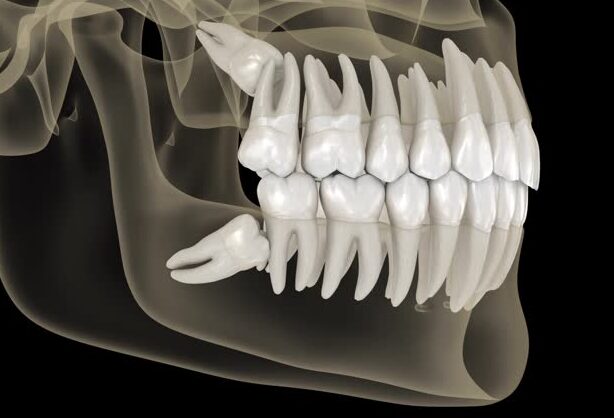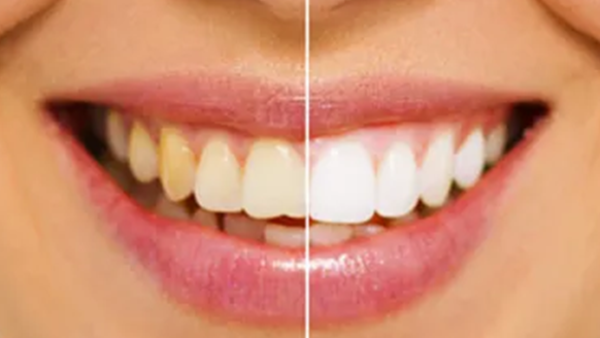Wisdom teeth, also known as third molars, are the last set of teeth to emerge in your mouth. While some people experience little to no issues as their wisdom teeth grow in, others may face significant discomfort and complications. At Pascack Dental Arts in Montvale, New Jersey, we understand how wisdom teeth pain can disrupt your daily life, and we’re here to help you find relief. Below, we’ll explore the causes, symptoms, and effective ways to manage wisdom teeth pain.
What Causes Wisdom Teeth Pain?
Wisdom teeth pain is often a result of the following conditions:
- Impacted Wisdom Teeth
- When there isn’t enough room in your mouth for wisdom teeth to fully emerge, they can become trapped under the gumline or against other teeth. This is known as impaction and can lead to severe pain and swelling.
- Eruption Pain
- As wisdom teeth push through the gums, it can cause tenderness and soreness. This is especially common if the teeth grow in at an awkward angle.
- Infections
- Partially erupted wisdom teeth create pockets where food particles and bacteria can accumulate, leading to infections like pericoronitis. Infections can cause pain, swelling, and even difficulty opening your mouth.
- Crowding
- Wisdom teeth can exert pressure on surrounding teeth, causing alignment issues and pain. This is particularly problematic if you’ve had previous orthodontic work.
- Cysts or Tumors
- In rare cases, impacted wisdom teeth can develop cysts or tumors in the jawbone, which can cause pain and damage to surrounding teeth and bone.
Common Symptoms of Wisdom Teeth Pain
The symptoms of wisdom teeth pain vary depending on the underlying cause but often include:
- Throbbing or aching pain in the back of the mouth or jaw.
- Swollen, tender, or bleeding gums.
- Difficulty chewing or opening your mouth.
- Headaches or earaches caused by referred pain.
- Bad breath or an unpleasant taste in your mouth due to infection.
- Swelling around the jaw or cheeks.
If you’re experiencing any of these symptoms, it’s essential to consult with a dental professional at Pascack Dental Arts to determine the best course of action.
Tips for Relieving Wisdom Teeth Pain at Home
While it’s crucial to seek professional dental care for persistent wisdom teeth pain, there are some remedies you can try at home to manage discomfort temporarily:
- Over-the-Counter Pain Relievers
- Non-prescription medications like ibuprofen or acetaminophen can help reduce pain and inflammation.
- Saltwater Rinse
- Rinse your mouth with warm salt water to cleanse the area and reduce swelling.
- Recipe: Mix one teaspoon of salt in a cup of warm water and swish gently for 30 seconds.
- Ice Packs
- Apply an ice pack or cold compress to the outside of your jaw for 15 minutes to numb pain and reduce swelling.
- Clove Oil
- Known for its natural anesthetic and anti-inflammatory properties, clove oil can be applied directly to the affected area using a cotton swab.
- Avoid Irritants
- Steer clear of sugary, spicy, or hard foods that can irritate the gums around your wisdom teeth.
- Good Oral Hygiene
- Brush and floss gently around the affected area to keep it clean and prevent further irritation or infection.
Professional Treatments for Wisdom Teeth Pain
When at-home remedies aren’t enough, it’s time to visit a dentist for professional care. At Pascack Dental Arts, we offer the following solutions:
- Dental Evaluation
- A comprehensive examination, including X-rays, will help determine the position of your wisdom teeth and the cause of your pain.
- Antibiotics
- If an infection is present, antibiotics may be prescribed to address the underlying issue before further treatment.
- Wisdom Teeth Extraction
- For impacted or problematic wisdom teeth, extraction is often the best solution to alleviate pain and prevent future complications. The procedure is performed under local or general anesthesia to ensure your comfort.
- Ongoing Care
- Post-extraction follow-ups and care instructions will help you recover quickly and minimize discomfort.
FAQs About Wisdom Teeth Pain
1. How do I know if my wisdom teeth need to be removed?
Signs that your wisdom teeth may need extraction include pain, swelling, recurring infections, or misalignment of other teeth. A dental exam and X-rays will confirm the necessity of removal.
2. Is it possible to keep my wisdom teeth?
If your wisdom teeth are healthy, fully erupted, and not causing any issues, they may not need to be removed. However, regular monitoring is recommended to catch potential problems early.
3. What happens if I ignore wisdom teeth pain?
Ignoring wisdom teeth pain can lead to serious complications such as infections, cysts, or damage to adjacent teeth. Prompt dental care is essential.
4. How long does it take to recover from wisdom teeth removal?
Recovery typically takes about 7-10 days, with most patients feeling significant relief within a few days. Following your dentist’s post-op instructions can speed up the healing process.
5. Are there risks associated with wisdom teeth removal?
Like any surgical procedure, there are risks, including infection, dry socket, or nerve damage. However, these risks are minimal when the procedure is performed by an experienced dentist like those at Pascack Dental Arts.
6. Can wisdom teeth grow back after removal?
No, wisdom teeth do not grow back once they are removed. However, some patients may experience residual root fragments that require additional treatment.
Why Choose Pascack Dental Arts for Wisdom Teeth Care?
At Pascack Dental Arts, we prioritize your comfort and oral health. Our skilled team in Montvale, New Jersey has extensive experience diagnosing and treating wisdom teeth issues. From initial consultations to extractions and follow-up care, we’re dedicated to providing personalized treatment plans that meet your needs.
Don’t let wisdom teeth pain interfere with your daily life. Contact Pascack Dental Arts today to schedule your appointment and take the first step toward relief





Leave a Reply